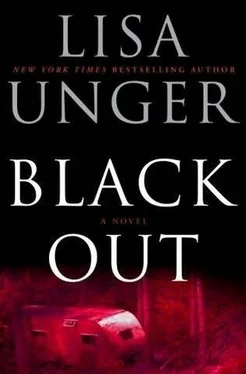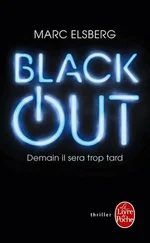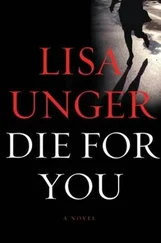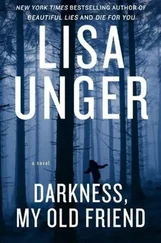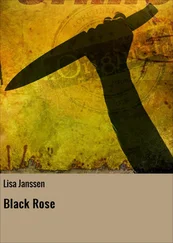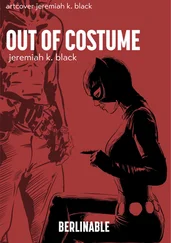“Did Harrison tell you there are other people looking for me?”
He shifts lower in his seat, puts his feet up on the railing. “There’s no one else looking for you.”
“He told me there was.”
“When?”
I release a sigh, knowing he’s not going to be happy. “I saw him tonight. He called me and asked me to meet him. I did.”
“That was stupid, Annie.”
We sit in silence. I want to tell him that I saw him kill Simon Briggs. But I don’t. I’m afraid. Afraid that he did it, afraid of why he shook Briggs’s hand. I’m also afraid he didn’t do it, that I imagined the whole thing. I’m suddenly very cold, though the night air is mild and slightly humid. I walk back into our bedroom. Gray follows, takes me by the shoulders, and spins me around.
“We’re okay,” he says. “Trust me. All the threats have been neutralized.”
This is the language he uses when he’s afraid, these passive military phrases: Threats have been neutralized. Our problems have been solved. But I don’t see fear when I look at him. His eyes are flat, cool; his mouth is pulled into a grim, tight line. In the dim light of the room, the scars on his face look darker, nastier.
“What about Briggs?” I ask. I’m hoping here that he’ll say something true, something that grounds me. I want him to tell me he killed Briggs. But he doesn’t.
“He won’t be a problem,” Gray says quietly.
I feel the slightest flicker of fear at his words. I walk toward the bed. He doesn’t move to follow me. I remember that he thought Briggs was working for someone. Even if he’d killed Briggs, wouldn’t that person still be looking, and wouldn’t Briggs’s death be a red flag that he’d gotten close? Suddenly I recall the envelope that I stuffed under the seat of my car. I never looked inside.
“What were you thinking, Annie?” says Gray. “Where did you meet him?”
“At a rest stop by the highway. He said, ‘Ophelia March is not forgotten. Not forgiven, not forgotten.’”
“He’s wrong. It’s over.”
“What about the person who followed me on the beach? The necklace I found in the sand?”
“You said yourself you’re not sure what you heard, who that might have been. It could have been anyone, or even Briggs trying to unnerve you. And there must be a million of those necklaces around, Annie.”
Can it be this easy to explain away?
“Trust me, Annie. We’re okay.” He kisses me softly on the lips and pulls me into a tight embrace. I can feel his relief, his love for me. I do know my husband-I don’t care what Harrison thinks.
I want so badly to believe Gray that I actually start to. When he releases me and looks into my eyes, his face comes into focus and the room around me starts to seem like my bedroom again, not a place where I’ll be sleeping until I flee my life. I don’t care whether Gray has killed Briggs or not. I know he’ll never tell me if he did. For a minute I can believe that Detective Harrison won’t come sniffing around again, that the person on the beach was Briggs or some teenager playing a prank. I’ll walk with Victory on the beach tomorrow and then take her to school just like any other day. In a week all of this will be a fading memory, like the car accident you just narrowly avoided that leaves you shaken and glad to have survived.
Gray’s hands start roaming my body, and I come alive inside. My relief and the strength of his body, the warmth of his skin against mine, awake a deep hunger. His lips are on my neck and then my collarbone as he peels away my shirt and goes to work on my jeans. I am tearing at his clothes as he pushes me gently onto the bed. When he’s inside me, he wraps his arms around me so that I can feel every inch of his body against mine. He whispers my name over and over, soft and slow, like a mantra. “Annie. Annie. Annie.” Somewhere beneath the heat of my desire, I find myself wishing he’d call me by my real name. I wish he’d call me Ophelia. Even though I’m making love to my husband, I feel suddenly so lonely.
Afterward, as he’s drifting off to sleep, he whispers, “I can’t lose you, Annie. Stay with me.” I don’t know why he would say that. Does he sense that Annie is coming apart and drifting away? I ask him what he means, but he’s already sleeping.
I close my eyes. When I open them again, Ophelia is sitting in the chair by the fireplace. She’s laughing.
There are questions I’ve asked myself a number of times over the past few years: Can you shift yourself off and start again? If you’ve done unthinkable things, can you cast them away like unflattering garments, change your ensemble, and become someone else? What of the relief of punishment, the wash of atonement, the salve of forgiveness? I thought I was free. I was confident that I’d started over with the birth of my daughter. In motherhood, in the surrender of self, I became someone new. The ugly parts of myself and my other life were forgotten, literally. The blackouts, the strange flights-all of that ended when she was born. I couldn’t be that person anymore. I had to be someone worthy, able to protect and care for the tiny life in my charge.
But I suppose I should have known that Ophelia would return. The doctor always said as much. You cannot hide from yourself forever. The terrible migraines and nightmares, he said, were a sign that my subconscious was working hard to suppress the memories my conscious mind couldn’t handle. Ultimately the shadow wants to be known, and she’ll do what she must to be acknowledged.
The next few days pass without incident, and I lull myself into thinking that everything has gone back to normal. I walk on the beach with Victory, take her to school and pick her up, we watch videos together in the evenings. Drew and Vivian have gone on a short trip, so I don’t have them hovering over my life-Drew with his dark, suspicious glances; Vivian with her concerned, motherly expressions. We are a small, happy family: me, Victory, Gray, and even Esperanza, whom none of us can imagine living without. Even when Gray and I bicker over whether Victory is too pampered, too spoiled (she is, of course, but so what?), it’s heaven in its normalcy. I am giddy with relief. Detective Harrison has stopped coming around. Ophelia is gone. Marlowe, too. No more dark forms lurking on the beach. No more pale, fragile-looking girls walking toward me in the night.
But they are not forgotten. No, never that. So I begin the scuba-diving lessons I told my escape artist (as I have come to think of him) I would. Just in case. Just as a precaution.
I am terrified of the water, the leaden quiet of it, the suffocating weight of it. I feel the first cut of panic even as I wade into the shallow end of a pool, as though it might start to rise and take me over, swallow me with its terrible silence. The brighter the sun, the clearer and bluer the water, the worse it is. It seems like a deceiver then, so inviting, so refreshing. You might forget how deadly it is, how it can effortlessly suck the life from you. When I watch Victory flitting through the water of Vivian’s pool or in the ocean, I envy her confidence and her complete comfort, even as I suppress a scream every time she disappears beneath the surface for more than a second or two.
“Don’t worry, Mommy!” she’ll call as she comes up for air, knowing instinctively of my fear even though I’ve never said a word, have worked very hard not to telegraph my dread to her. Somehow she knows.
I wasn’t always afraid. I remember going to Rockaway Beach with my father when I was little, five or six. He would take me into the cold, salty water, and together we would jump the waves. My mother stayed on shore waving to us in her red bikini. I remember swallowing gallons of ocean water, my stomach churning with it. My eyes burned. But I loved it, loved being with my dad, hearing his loud, whooping laughter. Even wiping out was its own kind of fun, those few seconds beneath the blue-gray swirl of the Atlantic, the relief of planting my feet again and taking in air, feeling the tide pull the ground out from beneath me, currents of sand running through my toes. When we were both waterlogged, we’d run back to my mother. I’d have goose bumps, even though the sun was hot. And my mother waited with a towel, wrapped me up tight and dried my hair. I remember feeling safe in the water, feeling like it was friendly, a place to have fun. I have to believe that it was Janet Parker who caused me to fear it with the images she evoked. They expanded and found a home in my mind. After the words she spoke, I could never swim again. Strange how powerful she was, as if she’d issued a curse and changed me.
Читать дальше
